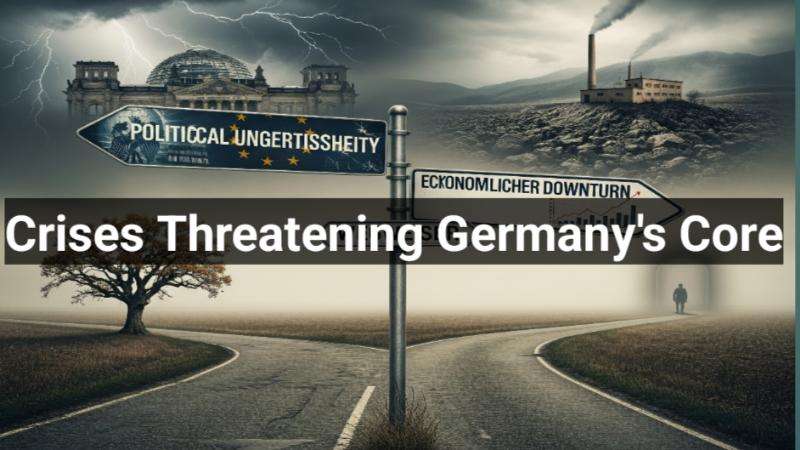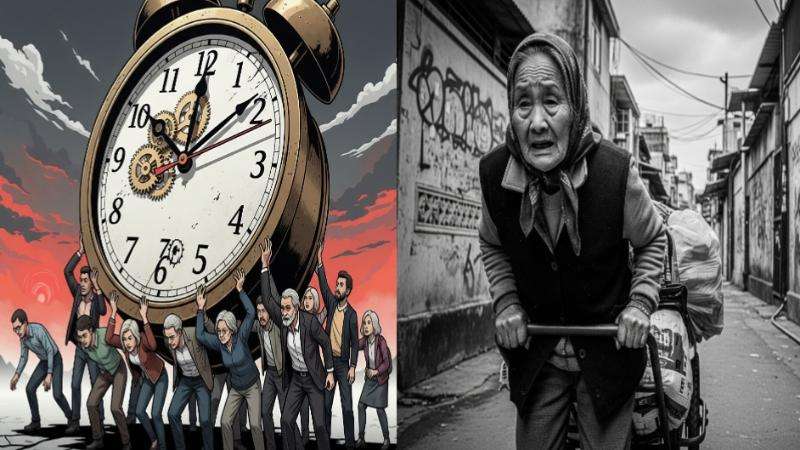Germany, long regarded as a beacon of stability and economic strength in Europe, is currently grappling with a confluence of interconnected crises. A sluggish economy, a fractured political landscape, and deep-seated societal anxieties over immigration have created a perfect storm of challenges, leaving citizens and leaders searching for a path forward, Daily Dazzling Dawn understands.
The Immigration and Asylum Conundrum
The debate over immigration and asylum has become a central and highly polarizing issue in German politics. Public frustration has grown with the country's traditionally welcoming stance toward refugees, particularly as economic pressures mount. This discontent has been a key factor in the unprecedented rise of the far-right Alternative for Germany (AfD), which has successfully positioned immigration as a top concern for voters.
For Germany's significant Muslim and immigrant communities, this political climate has created a pervasive sense of unease. While official reports on their latest situation are sparse, the heated rhetoric and public discourse around migration have led to increased social tensions. Many members of these communities feel targeted and marginalized by the political focus on their presence, even as they contribute to German society and the economy. The political pressure is pushing for a tougher stance on immigration and asylum policies, which is likely to have a direct impact on the lives of these communities and their integration.
A Stagnant Economy and Soaring Costs
Germany's once-mighty economic engine has stalled, with analysts forecasting minimal GDP growth. High energy costs, an over-reliance on exports, and a lack of public investment have contributed to a structural malaise. This economic stagnation has a direct impact on the daily lives of citizens, who are facing rising inflation and cost of living pressures. The prices of essential goods, food, and energy have risen significantly, eroding household savings and causing widespread frustration. The feeling of financial insecurity is palpable, leading many to blame the government and demanding solutions to reignite the economy.
Political Instability and Deepening Polarization
The country's political landscape is in a state of flux. The recent collapse of the ruling coalition government, culminating in a snap election, underscores the deep disagreements over fiscal and social policies. A sense of "fear and uncertainty is in the air," with both the far-right and far-left gaining ground. This polarization has spilled into the streets, with a rise in political violence and attacks on politicians from across the spectrum. The political fragmentation makes it difficult for any single party to govern, raising concerns about the future of Germany's democratic institutions.
Foreign Policy and a New Global Role
Amidst domestic turmoil, Germany is also redefining its role on the world stage. The war in Ukraine has forced a dramatic shift in foreign and defense policy, with a debate raging over increasing military expenditure. At the same time, the government is navigating complex relationships with other countries, including Israel, with differing opinions on its level of involvement in international crises. This external pressure adds another layer of complexity to an already challenging political environment.
Seeking Solutions
To address these intertwined crises, political leaders and experts are proposing a series of solutions. On the economic front, calls are being made for fiscal expansion, tax reforms, and a reevaluation of energy policy to boost competitiveness. For immigration, a tougher stance and more managed policies are being considered. However, the path to a solution remains unclear, as political infighting and a deeply polarized electorate make it difficult to achieve a consensus. The ability of Germany's leaders to unite a fractured nation and tackle these issues head-on will determine whether the country can reclaim its role as a pillar of European stability.








.svg)


